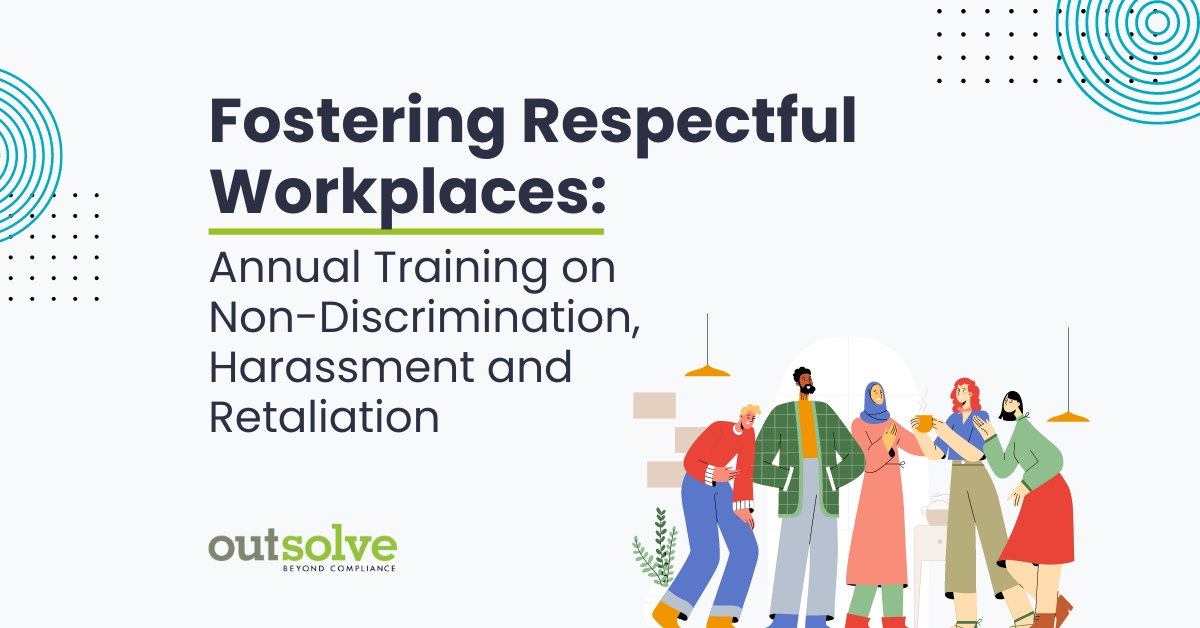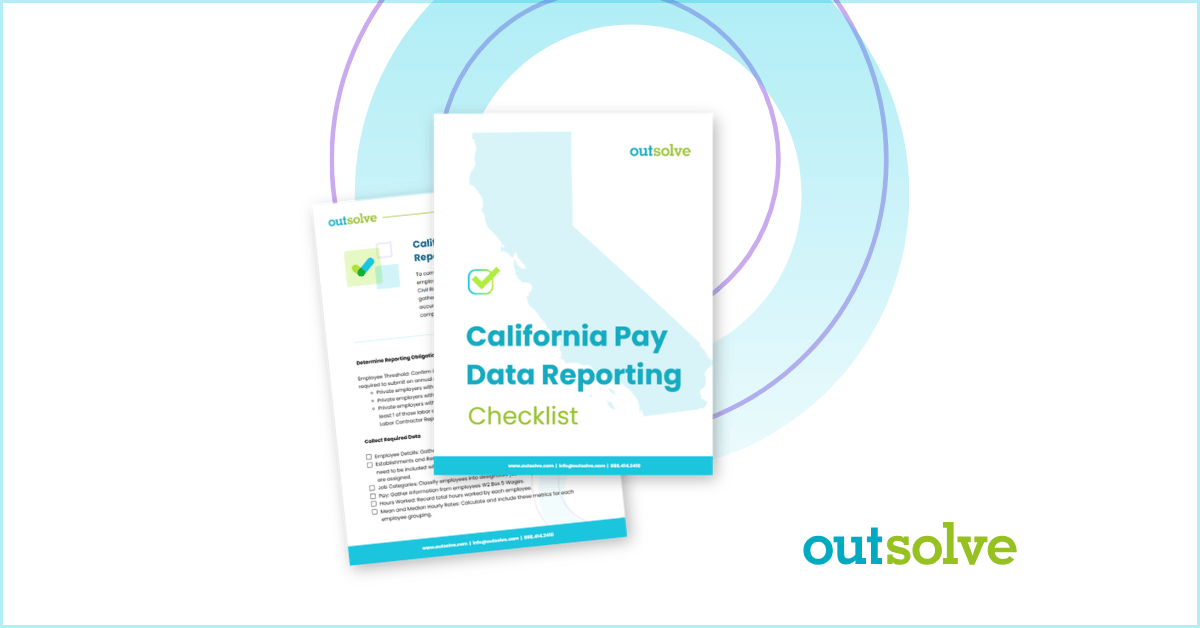2 min read
Fostering Respectful Workplaces: Annual Training on Non-Discrimination, Harassment and Retaliation
 Toni Ahl
:
Jan 23, 2024 1:30:00 PM
Toni Ahl
:
Jan 23, 2024 1:30:00 PM

OutSolve’s EEO colleague, Toni Ahl, is an occasional contributor to our blog. The views, thoughts, and opinions expressed in this article belong solely to Toni and do not necessarily reflect the viewpoint of OutSolve or its employees.
It is crucial for companies to regularly reinforce their policies regarding non-discrimination, harassment, and retaliation. This training should be conducted annually for managers and supervisors, and at least every other year for employees.
As an investigator with the Equal Employment Opportunity Commission (EEOC), I always asked a company against whom a charge had been filed to submit a copy of the policy related to the employment issue raised by the charge. In addition to the company policy, I asked if there were procedures that the company followed putting the policy in place. Having a policy is great but, if the policy is not disseminated and put into practice, it is not effective. During an investigation, when I interviewed witnesses, I asked if they were aware of the policy. If the witness said they were aware of the policy, I asked them to explain it to me. I also asked if they had any training on the policy and, if they said yes, asked them to describe the training they had.
It’s important for a company to keep records of the training they provide like sign in sheets, if in person, or some electronic record if the training is done online. A copy of the agenda for the training or a copy of the program if online is important too so that the investigator can see what was covered.
As we know, company liability in a harassment charge can depend on whether the company has an effective policy, has widely disseminated and trained on it, and then takes prompt and effective action if harassment is reported. Raising awareness for supervisors and managers to watch for possible co-worker harassment is important. Even if the conduct does not rise to the level of illegal harassment for EEO purposes, bullying and harassment is bad for business. That conduct can lead to absenteeism and employee turnover.
EEO elements of illegal harassment include:
- Conduct must be unwelcomed which means the employee did not solicit or invite the conduct and considers it undesirable;
- Conduct must be based on one or more of the traits protected by the laws EEOC enforces;
- Conduct must result in a tangible employment action or create a hostile work environment; and
- There is also a basis for holding the employer liable.
Supervisors and managers must grasp the crucial fact that all the statutes enforced by the EEOC explicitly prohibit retaliation. Employees fall under the protection of non-retaliation provisions if they either oppose a perceived discriminatory policy or practice or actively participate in an EEO investigation or action. Making a reasonable accommodation request is considered participation, and raising a complaint about being denied such an accommodation is seen as opposition to an alleged discriminatory practice. The key point to note is that the ultimate decision on the initial complaint doesn't determine whether retaliation occurred. What matters is whether the actions taken against the person who opposed or participated are likely to discourage others from engaging in the same process.
If you have questions about training, harassment or retaliation, feel free to reach out to me at eeoadvantage@gmail.com or (502) 553-7648. Have a great year!
President at EEO Advantage, LLC
Weekly OutLook
Featured Posts

5 Key Compliance Items HR Can’t Afford to Ignore

HR Compliance Checklist: What Every HR Pro Needs to Know
Related Posts

outRageous HR: HR Plans vs. Reality: Why Execution Falls Apart (and How to Fix It)
We all know the feeling. In Q4, strategic planning is in full swing, and the roadmap for the upcoming year looks pristine. You have a solid...
.png)
Beat the Rush: Outsource Federal Reporting Requirements in Q1
The beginning of the year usually feels like a fresh start that brings new business initiatives, goals, and strategies. The work you do between...

California Pay Data Report Checklist for HR Professionals
With changes regarding California pay data reporting taking effect in 2026 and 2027, this is the checklist you need to stay confident that you've got...
